“Why do I feel nauseous when I think about someone?” “Why do I feel hollow in my chest?” “Why do I feel sick when I see my ex?” “Can you die from lack of love?” Have these questions kept you up all night? Being in love can make you feel euphoric. At the same time, a state of deep longing and yearning can cause pain and despair that can be difficult to manage. We call it lovesickness.
A lot has been said about love, but little about lovesickness. Is lovesickness real? What are its symptoms? Can one fix it? We spoke to psychologist Anita Eliza (MSc in Applied Psychology), who specializes in issues like anxiety, depression, relationships, and self-esteem. She elaborated on the lovesickness definition, its causes, signs, and how to cope with being lovesick.
What Does Being Lovesick Mean?
Table of Contents
Lovesickness finds mention in some of the earliest writings, ancient medical texts, and classical literature, albeit by different names. You can find descriptions of the concept in Greek philosophy and in the works of Shakespeare and Jane Austen. Hippocrates believed that being lovesick was the result of an imbalance in the body and its emotions while French physician Jacques Ferrand published a study called A Treatise on Lovesickness (name shortened) to define, diagnose, and eventually release one from the throes of love side effects.
As per Anita, here’s the lovesickness definition, “Being lovesick is a condition in which you love and miss someone so much that, in their absence, you find it almost impossible to function effectively. This person is constantly on your mind. You tend to daydream and fantasize about them all the time. This causes discomfort to say the least, or sometimes complete dysfunction. ”
Is lovesickness real?
Can heartbreak make you throw up? Is lovesickness a real thing? Yes! Being sick in love or love depression are not just feelings; they are often accompanied with tangible symptoms. Try asking yourself, what does love feel like in the body? Does love make you dizzy? Similarly, the lack of love, too, can cause similar or worse symptoms.
Lovesickness, even though not a clinically recognized mental health condition, can affect your ability to act normally because the romantic feelings you have for your crush consume your mind, body, and soul, making it next to impossible to concentrate on anything else. You begin to obsess over this person. This love disease is usually about the unpleasant, troublesome, and distressing aspects of love where a person experiences pain and sadness. They are left wondering how to cure lovesickness once and for all.
What causes lovesickness?
According to Anita, “Lovesickness can stem from different situations. If you love someone, but they are unable to build an emotional connection with you, you can feel lovesick due to rejection. You can feel like you are not good enough. Another possible reason is the lovesick person filling a void through the love and attention of their crush.” Below are a few situations that can push you into the stifling overwhelming feeling of love (or its absence):
- A longing or yearning for romantic love, especially when you haven’t experienced love in your life
- Loss of a partner by either a breakup or death
- Limerence or obsessive infatuation (eventually leading to depression after limerence)
- Failing to connect with someone on an emotional or physical level
- Missing your partner who is away from you (in case of a long-distance relationship)
Lovesickness can trigger physiological and emotional responses similar to the reactions of someone dealing with drug addiction. To help you get a better idea, let’s understand the different signs of lovesickness.
13 Signs You Are Lovesick
Those butterflies in your stomach feel amazing when you’re in love but then the feelings flip. And the supply of the love hormone that makes you feel giddy joy is stopped. This is when grief and despair set in. Here are some symptoms you are in love so deep that you need to be careful.

1. You have mood swings or an irrational behavior
Behaving irrationally or experiencing extreme mood swings is a sign of lovesickness. Irritability, anger issues, outbursts, frustration, nervousness, anxiety, and feeling sad and depressed are all side effects of love. Similarly, feeling compelled to make rash decisions in the name of love is equally dangerous.
Anita explains, “A lovesick person may exhibit irrational behavior like following their crush secretly or spending a long time getting ready just in case they bump into their love interest somewhere. They will keep checking their inbox to see if they have received any message from them. They have imaginary conversations and prepare to talk to them in case they meet them somewhere.”
2. You go through social withdrawal and isolation
Anita explains, “A lovesick person tends to disconnect with others because their mind is always preoccupied with thoughts of their prospective lover.” Sometimes, those experiencing broken heart syndrome would rather be alone instead of socializing or being around their family, friends, and loved ones. They can only socialize with the person they love, and they are not concerned about what is happening around them. They prefer to shut everyone out because they feel nobody understands them.
3. There’s an increase or decrease in appetite
A “pit in my stomach” after a heartbreak can also reflect as loss of appetite in love. Anita says, “You may notice an increase or decrease in appetite, because all you’re doing is thinking excessively about your crush. This is a biological response. ”
Observe your eating pattern and appetite. If you think it is unstable, unhealthy, or different from what it used to be, you might be experiencing lovesickness symptoms. If you are barely eating, overeating, consuming a lot of junk, or binge-eating as a result of which you find it difficult to do other things, it could be a sign you have a broken heart.
Related Reading: Feeling Lonely In A Relationship – 15 Tips To Cope
4. Stalking your love interest is a definite sign you’re lovesick
Trying to get information about your crush online and offline is standard behavior. But if you reach the point of being obsessed with them, then it’s a matter of concern. Are you experiencing the following side effects of love?
- Secretly following them, trying to keep track of their whereabouts
- Keeping a track of their love life
- Showing up at their workplace
- Keeping a track of their activities online and offline
- Holding on to their belongings. For example, storing all photographs, videos, recordings, or any other material that you find because it’s your only way of feeling close to that person
5. Overanalyzing everything becomes a norm
Lovesick people tend to overanalyze the most normal or smallest of things that their love interest says or does for them. They always try to read and analyze their crush’s body language. They will never believe or read the surface meaning of anything that their object of interest does. Always reading between the line, nothing is taken at face value by them.
6. You’re troubled with an erratic sleep pattern
Missing someone causes insomnia — Yes or no? According to Anita, “Yes! You might not be able to sleep at all because you are thinking about your object of interest excessively.” You might struggle with a sleep disorder because the thoughts of your crush keep you up at night, leading to fatigue, exhaustion, irritability, and tiredness the next day. In a vicious cycle, poor sleep might further aggravate your love condition and all the symptoms it comes with. Phew! If you are wondering how to cure lovesickness, we will get to it in just a minute.

7. Restlessness accompanies those who are lovesick
Anita says, “One of the major signs one is sick in love is restlessness and a constant empty feeling in the chest. You may also find it difficult to focus. This happens because you or any lovesick person cannot get their crush out of their mind.”
You might also find it hard to control your temper since that is your biological response. You jump from one task or activity to another without completing them. Naturally, productivity at work or in other spheres of life goes for a toss.
Related Reading: Dating An Overthinker: 15 Tips To Make It Successful
8. You deal with feelings of insecurity
Feeling insecure is one of the most common signs of unrequited love. This person is constantly competing with those they think are worthy of their object of interest. They are always looking for competitors and trying to be better than them. If they feel like someone else is coming closer to their crush or they find someone cropping up repeatedly on their love interest’s social media, they might begin to fear losing the person they’re so besotted with, causing them to feel insecure.
This way of thinking inevitably causes low self-confidence and poor self-esteem. All of this is a vicious cycle where insecurity makes a person behave in a way that makes it even more difficult for them to sustain a healthy, secure relationship with a romantic partner.
9. You notice obsessive thought patterns
This is the most obvious characteristic of a lovesick person that is clear from most other points made in this article. Anita explains, “Lovesick people experience constant obsessive thoughts about their crush. They are always fantasizing about them, trying to find out more about their lives, and imagining happy or romantic scenarios with their object of interest due to which they have a hard time concentrating on other things.”

10. A lovesick person might have a toxic attachment style
Anita elaborates, “An attachment style is formed early in life by observing our primary caregivers and continues to function as a working model for relationships in adulthood. When a person has a secure attachment style, they are confident enough to meet their own needs instead of depending on their partner to take care of them. But if someone has an insecure attachment style, they tend to choose a partner with the sole purpose of fulfilling their deepest needs all the time. This pattern is toxic.”
To a large extent, this explains a lovesick person’s behavior and mindset. A person experiencing unrequited love depression tends to operate within an anxious attachment style where they always fear rejection and abandonment. They are scared they will lose the people they love. This makes them create a fantasy they attach themselves to because it gives them a sense of control. Plus, in their fantasy, the person is in love with them and is always by their side no matter how different reality looks.

11. You’ve been projecting fantasies
One’s fantasy is in one’s control. No wonder when there isn’t any real love, lovesick people tend to depend on fantasy to cure themselves of this condition. They create a false reality within which they live and function. They don’t care about how their love interest is in real life. All that matters to them is their idea of who and how this person is. They don’t care about their crush’s toxic traits because, in their fantasy, this individual is the most perfect person they can find.
12. You experience confusion and lack of focus
If you are always confused about things, have trouble building mental or emotional intimacy with people, find it difficult to interpret what others are saying, or are unable to recall past events or concentrate, know that it’s a matter of concern. Lovesickness can affect your attention span. You might find it difficult to talk about stuff other than this person you love or the relationship you want with them. It can cause you to lose focus at work, make you forget daily chores and errands, and can distract you from your responsibilities.
Related Reading: Attachment Styles Psychology: How You Were Raised Affects Relationships
13. A lovesick person might suffer from physical ailments
One of the most common physical signs of being lovesick includes the things in this list. Such physical symptoms of being in love usually arise out of poor mental health:
- Nausea and feeling faintish
- Uneasiness and physical discomfort in the form of aches: Headache, stomachache, etc.
- Heart flutters, dizziness, and nervousness — All of which make you want to throw up
- Issues such as stress-induced cardiomyopathy
- Research shows that physical symptoms of being in love that’s unrequited could also include running a fever, loss of appetite, headache, rapid breathing, and heart palpitations
The above study by the National Center for Biotechnology Information concluded that your brain becomes overloaded with chemical changes as a result of which you experience a range of emotions (usually negative) that affect your physical health.
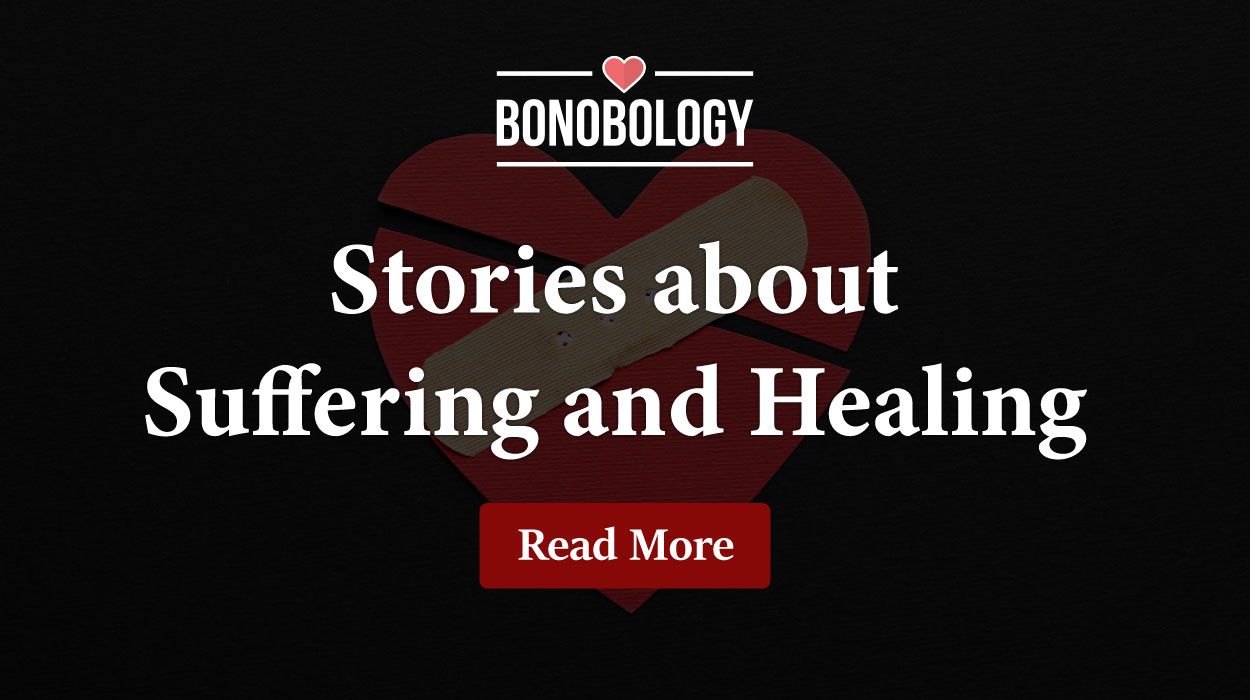
How To Cope With Feeling Lovesick
But how does one cure the all-consuming negative feelings from a broken heart? Well, there’s no quick fix to this. Dealing with heartbreak or obsession is not easy. It can take weeks, months, or even years to heal. Lovesickness can make you feel rotten inside as well as make you physically ill. Having said that, the good news is that you can heal from it. Here are a few important things to keep in mind to get rid of lovesickness:
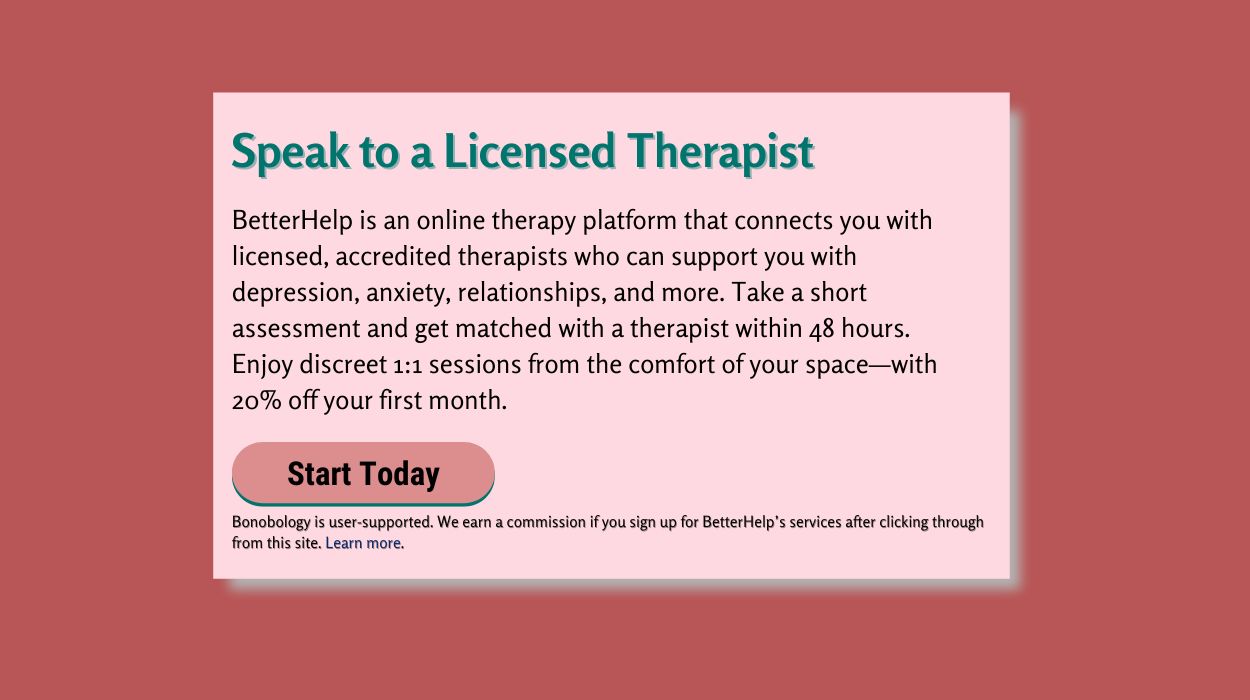
1. List down their shortcomings
Sadness from lack of love can make you obsess over the person to the extent that you fail to notice their shortcomings. In your eyes, they are perfect, which is why it becomes crucial that you consciously try to spot their flaws and imperfections. This might sound like a strange coping skill but focus on who they are as a person, their behavior patterns, any toxic traits that they might have, and their opinions and beliefs.
2. How to get rid of lovesick symptoms? Focus on yourself
You must shift your focus from your crush to yourself. The less time you are spending thinking about your crush, the more you are out of this torment. Here are some simple things you can try:
- Take some time out for self-care and wellness
- Keep yourself busy with things that bring you joy
- Create a routine
- Find activities to fill your free time with
- Practice self-love
- Set healthy relationship boundaries
- Try journaling, music, or any form of art to enhance self-awareness
- Spend time with a friend or any loved one in your life regularly
3. Snap all contact with your crush
Anita recommends, “Establish the no-contact rule with the person in question. This includes restricting social media activities.” You need to give yourself time and space to heal. Avoid calling or texting them or constantly checking up on them. Delete all photos, videos, recordings, or any other media you have on them. Get rid of their belongings. Wait till you feel better; at least for a few weeks. Until then, keep the memories and the person at bay.
Related Reading: The 7 Components Of No-Contact Rule Male Psychology
4. Seek help to overcome this love obsession
Anita shares, “It may take a while to get over these unhealthy patterns of thoughts and behaviors. But if they persist for a long time, seek professional help. Rely on a trusted family member or a friend who can provide you the support you need until professional help is sought.”
A mental health professional can identify underlying factors and suggest coping mechanisms to get rid of feeling lovesick; they can help you build healthy relationships in the future. If you are stuck in a similar situation and are looking for help, Bonobology’s panel of experienced and licensed therapists is only a click away.
5. Notice your thought patterns
Anita says, “A lovesick person needs to first identify their obsessive patterns and thoughts. They need to acknowledge that their feelings and behaviors are unhealthy for their overall well-being. Identifying their triggers that keep them fixated on their crush is the first step of the healing process.”
You need to be mindful of your feelings and behavior patterns if you want to treat them. When you’re fantasizing about someone and thoughts of your romantic love consume your mind, make the effort to differentiate between fantasy and reality.
Key Pointers
- Feeling lovesick involves obsessing over a person so much that it starts to affect your overall well-being and disrupts your ability to create healthy relationships
- Physical signs of lovesickness include nausea, loss of appetite, fever, dizziness, rapid breathing, and heart palpitations
- A lovesick person might feel restless, anxious, and even suicidal in severe cases. They might struggle with insomnia and concentration issues
- Taking care of yourself, seeking support from a loved one, snapping all contact with your crush, and focusing on their flaws can help you get rid of feeling lovesick
You might wonder, how long does lovesickness last? You can’t overcome feeling lovesick and fix the broken heart syndrome overnight, so don’t rush it. Healing is a time-consuming process but a fruitful one. Once you start focusing on yourself, your feelings for your crush will eventually fade. Remember that true love should make you feel wonderful and good about yourself. Do not worry, this too shall pass.
This article has been updated in August 2023.
FAQs
You cannot predict the time period for this. It could be weeks, months, or even years! It all depends on the extent of the trouble you are in and your nature. However, if you notice lovesickness symptoms persisting for over a month, seek help.
It isn’t, because it usually arises out of negative emotions. Heartbreak, rejection, longing for love, fear of abandonment, unrequited love — All of these situations can make a person lovesick. It might also lead to severe mental health conditions like depression and anxiety.
Yes. Men also suffer from lovesickness. A survey by EliteSingles revealed that men tend to suffer the most as far as being lovesick was concerned. Out of the 95% of men who admitted to feeling lovesick, it was found that about 25% more men suffer from lovesickness than women after a relationship ends.
Your contribution does not constitute a charitable donation. It will allow Bonobology to continue bringing you new and up-to-date information in our pursuit of helping anyone in the world to learn how to do anything.

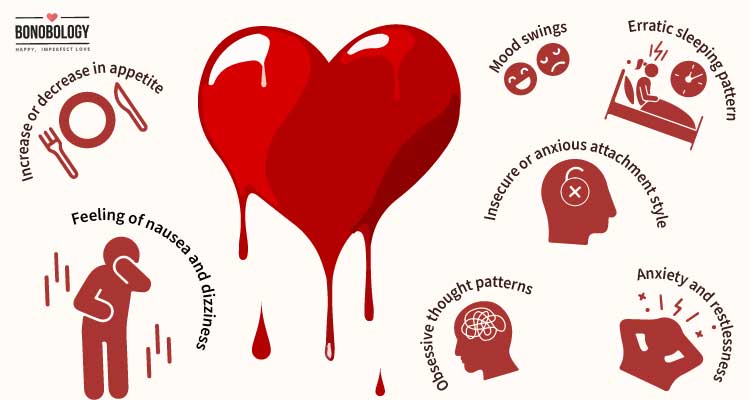

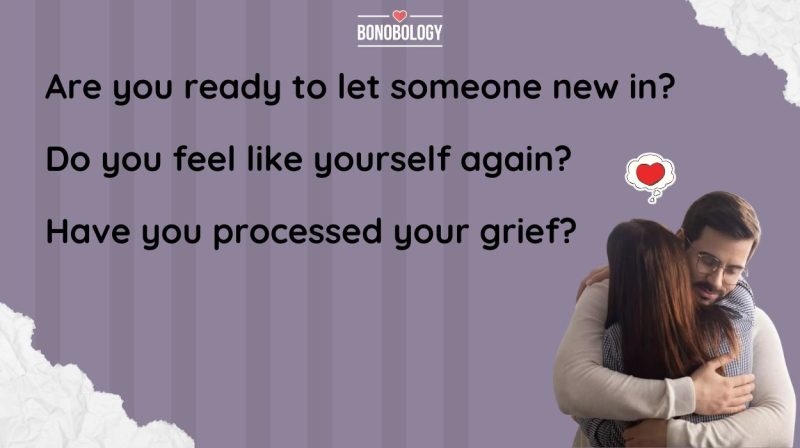
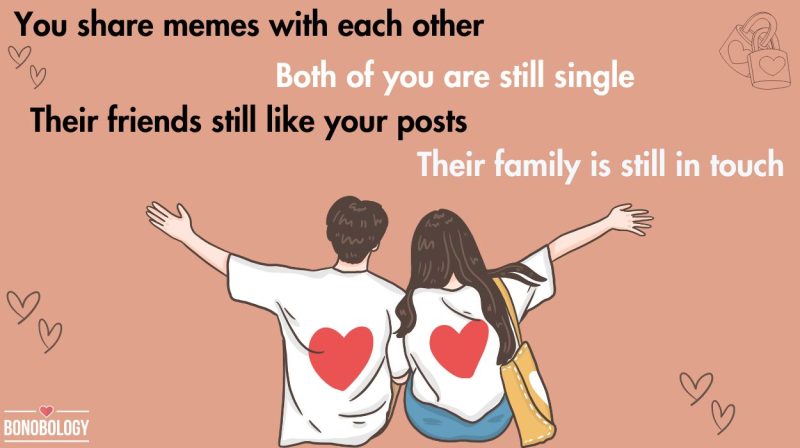














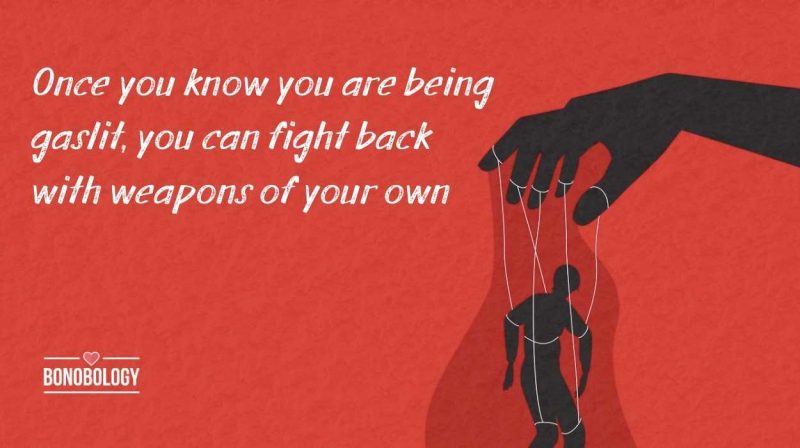



Featured
Am I Moving On Too Quickly After Death Of Spouse—How To Decide
15 Signs You’ll Get Back Together With Your Ex
How To Get Over Trust Issues — A Therapist Shares 9 Tips
Learn How To Forgive Yourself For Hurting Someone You Love
How To Find Peace After Being Cheated On — 9 Tips From A Therapist
How To Forgive A Cheating Husband: 15 Helpful Tips
35 Disturbing Signs Of Gaslighting In A Relationship
What Is Narcissistic Ghosting And How To Respond To It
‘My Husband Starts Fights And Then Blames Me’: Ways To Cope
How To Rebuild Your Life After The Death Of A Spouse: 11 Expert-Backed Tips
My Husband Died And I Want Him Back: Coping With Grief
“Am I Unlovable” – 9 Reasons You Feel This Way
11 Signs Your Girlfriend Was Sexually Abused In The Past And How To Help Her
Coping With Breakups: The Must-Have Breakup Apps For Your Phone
15 Signs You Are Wasting Your Time Trying To Get Your Ex Back
Why Are You Obsessed With Someone You Barely Know — 10 Possible Reasons
33 Phrases To Shut Down Gaslighting And Silence Gaslighters
The Emotion Wheel: What It Is And How To Use It To Build Better Relationships
The Role Of Supportive Relationships In Addiction Recovery
7 Signs You Have A Verbally Abusive Wife And 6 Things You Can Do About It